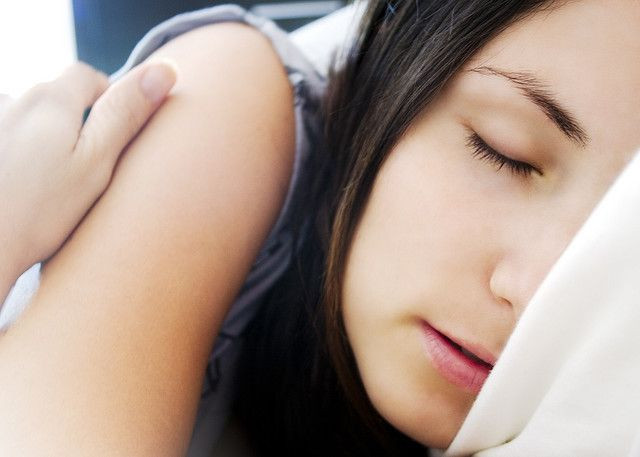Spinal Fluid Substance Acts as a Sleeping Pill in People With Sleep Disorder

An Atlanta woman's condition that made her drowsy even after sleeping for more than 16 hours a night led researchers from Emory University find the cause of hypersomnia.
Hypersomnia is a condition characterized by excessive sleeping during the night followed by daytime napping. People with this condition can sleep for hours at a stretch and still be drowsy.
Researchers have now found that it is the presence of certain substances in the cerebrospinal fluid that induces sleep in people who have hypersomnia.
Excessive stimulants to keep people awake only increase their problems as the medication raises their blood pressure levels and cause rebound sleepiness. The woman from Atlanta who was studied in the current research developed tolerance towards these stimulants that led to doctors increasing her doses. Later, once the medications wore off, she would go on sleep binges and slept for many hours. Her condition was so severe that she had to regularly miss work due to sleep.
"These individuals report feeling as if they're walking around in a fog - physically, but not mentally awake. When encountering excessive sleepiness in a patient, we typically think it's caused by an impairment in the brain's wake systems and treat it with stimulant medications. However, in these patients, the situation is more akin to attempting to drive a car with the parking brake engaged. Our thinking needs to shift from pushing the accelerator harder, to releasing the brake," said David Rye, lead author from Emory University.
Samples of hypersomnia patients' cerebrospinal fluid showed that it has a substance that increases the effects of a chemical present in the brain called GABA (gamma-amino butyric acid). The size and effect of GABA receptor in hypersomnia patients is twice as large when compared to the same receptors found in non-hypersomnia people, a statement from University of Emory said. Substances like alcohol, barbituates and benzodiazepines also increase the effects of GABA.
Researchers aren't sure about the substance that's actually enhancing GABA's effects. Due to its sensitivity to certain enzymes, researchers think that it is more likely a peptide that resembles the hormones oxytocin or hypocretin.
Clinical trials at the University, that included seven hyper-sleepy people, showed that a drug called flumazenil restored alertness in people diagnosed with hypersomnia.
"Previous studies with flumazenil indicate that it does not have a wake-promoting effect on most people, so its ability to normalize vigilance in this subpopulation of extremely sleepy patients appears genuinely novel," Rye said.
Published by Medicaldaily.com



























